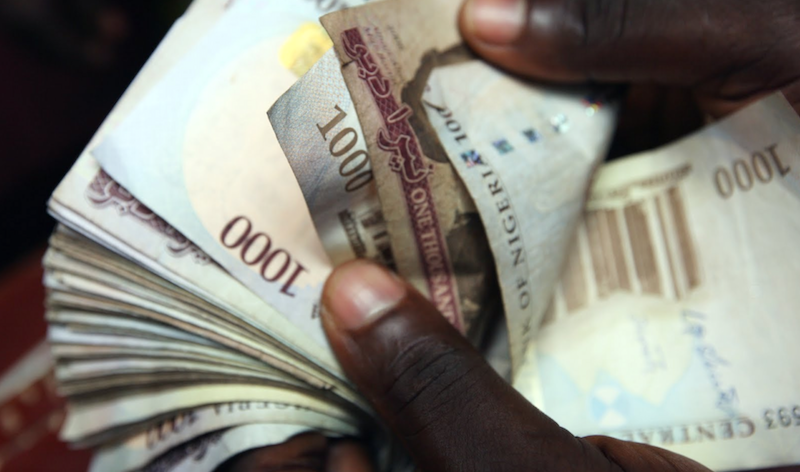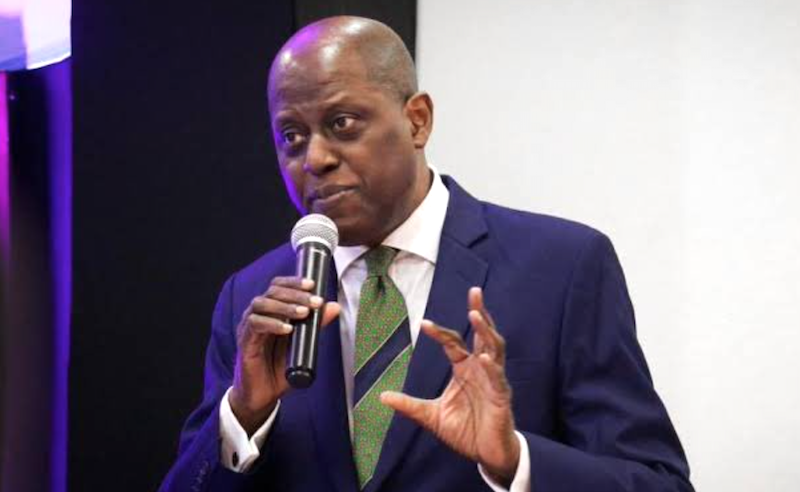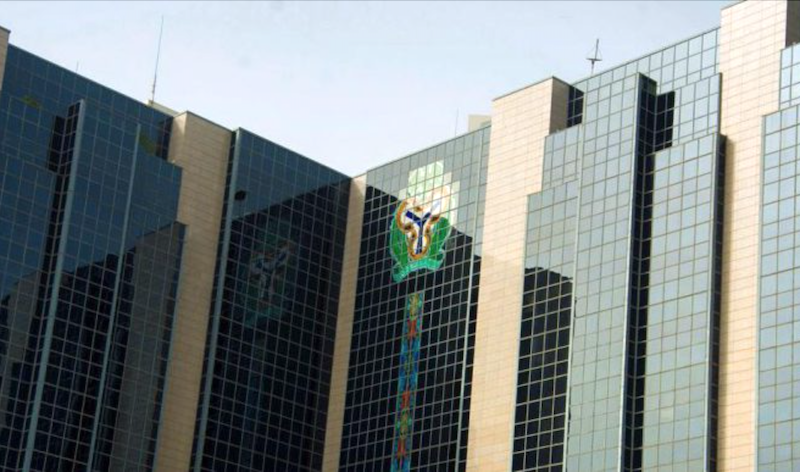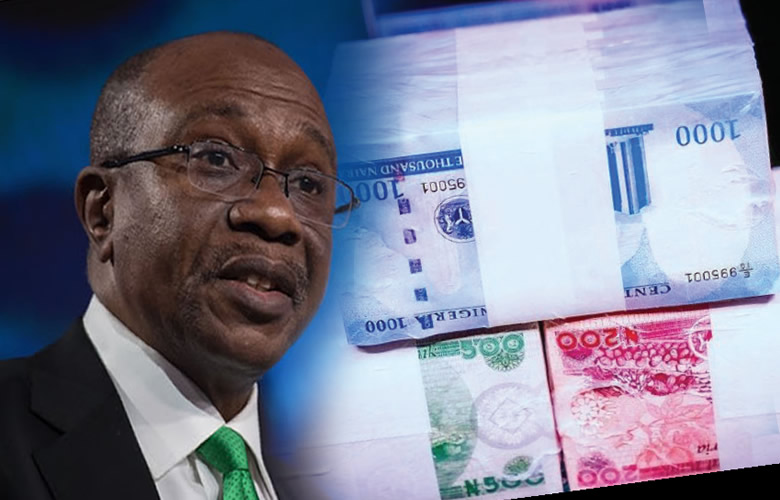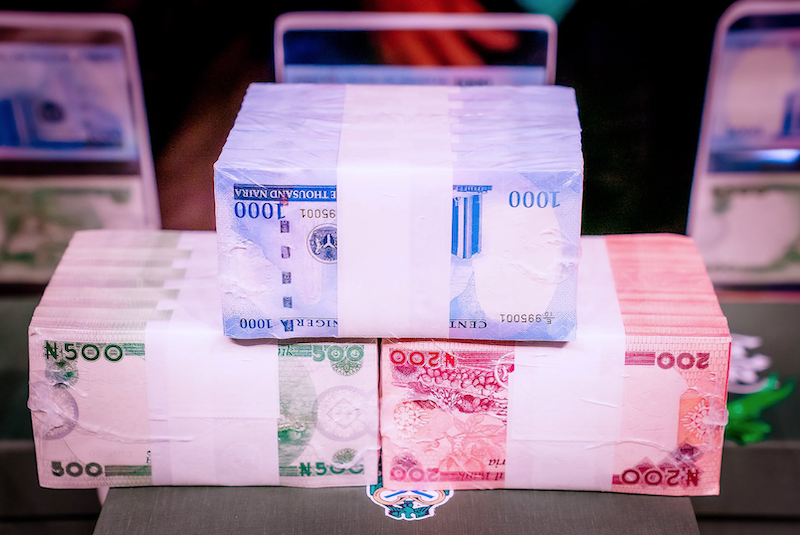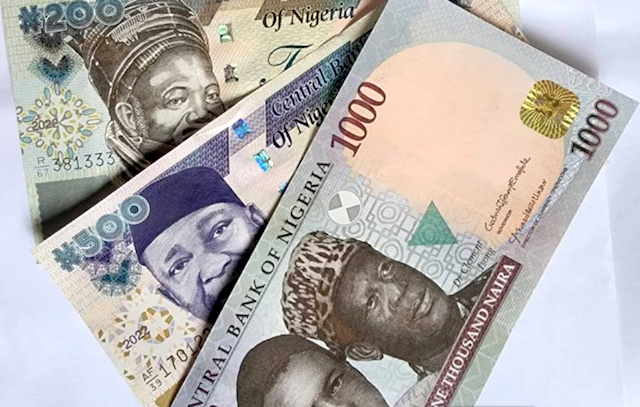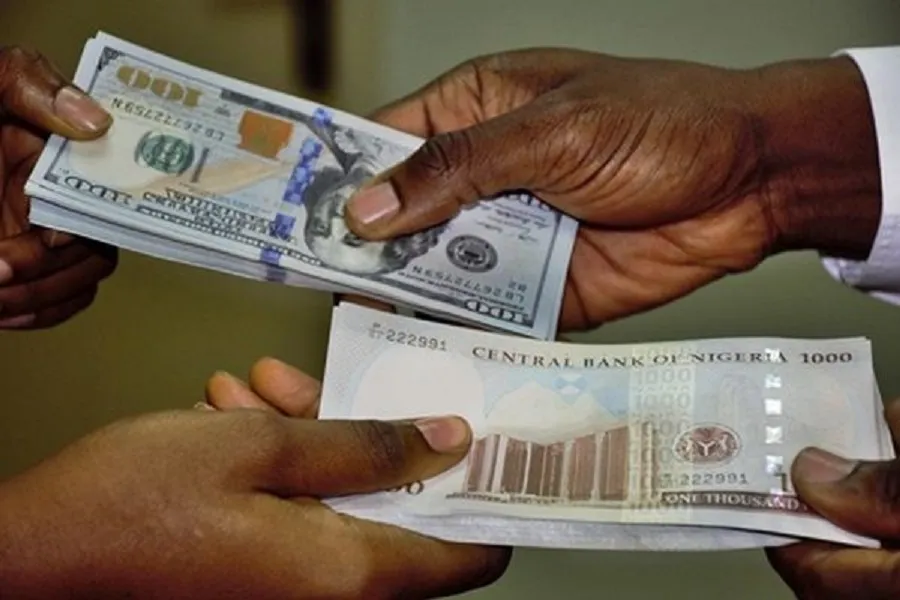The Central Bank of Nigeria (CBN) has opened up on the prevailing scarcity in the supply of Naira notes.
The apex bank said that the seeming currency scarcity was occasioned by large volume withdrawals of cash from various CBN branches by DMBs.
It said that panic withdrawals by bank customers was also partly responsible for the seeming scarcity.
“The attention of the CBN has been drawn to reports of alleged scarcity of cash at banks, ATMs, PoS and BDCs in some major cities across the country.
“Our findings reveal that the seeming cash scarcity in some locations is due largely to high volume withdrawals from the CBN branches by DMBs and panic withdrawals by customers from the ATMs,” the apex bank stated.
There have been complaints by some bank customers on scarcity of Naira notes at the counters, Automated Teller Machines (ATMs) Points of Sale (PoS), and Bureaux de Change (BDCs).
Some officials of Deposit Money Banks (DMBs) also claimed that the DMBs were not getting adequate supply of cash from the CBN.
But, according to a statement issued by the Corporate Communications Department of the CBN, there is no shortage of Naira notes, as there is adequate supply of the currency in the economy.
“While we note the concerns of Nigerians on the availability of cash for financial transactions, we wish to assure the public that there is sufficient stock of currency notes for economic activities in the country.
“The branches of the CBN across the country are also working to ensure the seamless circulation of cash in their respective states of operation,” it stated.
The CBN advised members of the public to guard against panic withdrawals as there was sufficient stock to facilitate economic activities.
It also advised Nigerians to embrace alternative modes of payment, which would reduce pressure on using physical cash.
Meanwhile, the CBN also warned Nigerians to beware of fake Naira banknotes in circulation.
Its Acting Director, Corporate Communications, Mrs Hakama Sidi-Ali, gave the warning in a statement.
Sidi-Ali said that the counterfeit Naira notes were mainly used for transactions in food markets and other commercial centres across major cities in the country.
She said that any person found complicit in the circulation of the counterfeit currency notes would face severe sanctions.
The director said that the law provided punishment by a term of imprisonment of not less than five years, for any person found culpable of counterfeiting Naira notes or any other legal tender in Nigeria.
“The attention of the CBN) has been drawn to the circulation of counterfeit banknotes, especially higher denominations by some individuals.
“The CBN is in constant collaboration with relevant security and financial agencies to confiscate fake Naira banknotes, arrest and prosecute counterfeiters.
“Members of the public are also encouraged to report anyone suspected of having counterfeit naira notes to the nearest police station, branch of the CBN, or via contactcbn@cbn.gov.ng,” she said.
She enjoined all DMBs, Financial Houses and Bureaux de Change and the general public to be more vigilant.
Sidi-Ali urged them to take all necessary precautionary measures to curtail the acceptance and distribution of counterfeit notes.
“Furthermore, the general public is encouraged to embrace alternative modes of payment for day-to-day transactions to mitigate the risk of spreading counterfeit banknotes,” she said.
